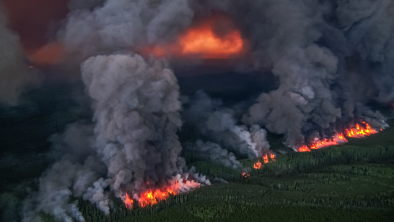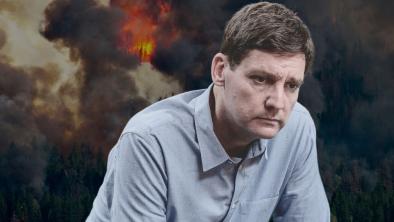New mapping shows approved or pending logging permits in at least 50,000 hectares of BC’s target deferral area
Wilderness Committee & UBCIC
Stalled old-growth deferral process leaves irreplaceable at-risk forest on the chopping block, some areas already logged
VICTORIA / UNCEDED LEKWUNGEN TERRITORIES — New mapping analysis by the Wilderness Committee shows at least 50,000 hectares — more than four times the area of the City of Vancouver — of the old-growth forest the B.C. government has targeted for deferral has been approved for logging, is pending approval and in some cases has already been logged.
Despite assurances from the government that progress towards deferrals is underway, logging is still proceeding in at-risk old-growth. This includes approximately two thousand hectares of cutblocks approved or applied for in the last month since the government’s announcement.
Significant lag times in the availability of data combined with B.C.’s size and geography make it difficult to calculate how much of the approved logging has already been completed. The Wilderness Committee has factored these delays into its estimates and cautions that imprecise provincial forest inventories make nailing down exact numbers of hectares nearly impossible.
“The takeaway here is that in absence of immediate deferrals, tens of thousands of the 2.6 million hectares of old-growth the BC NDP government committed to set aside is under imminent threat of logging. Some of it has already been logged or is being logged as we speak,” said National Campaign Director Torrance Coste for the Wilderness Committee. “The B.C. government threw the 2.6 million hectare number out there and patted itself on the back for it as if it was an accomplishment rather than a vulnerable target.”
The province notified First Nations about the deferrals, asking them to respond within 30 days. However, it provided no support to offset potential lost revenue and no resources to help assess the possible impacts of deferrals.
“The BC NDP government has evaded responsibility and hastily thrown the conflict over old-growth into the laps of Indigenous people, forcing First Nations into an impossible situation. While chainsaws are still roaring and old-growth forests continue to fall, First Nations must confront multiple, complex challenges around resourcing conservation and safeguarding their livelihoods,” said President of the Union of BC Indian Chiefs Grand Chief Stewart Phillip. “Premier John Horgan needs to quit stalling and show some courage on this pressing issue. That means immediately deferring logging in at-risk old-growth while resourcing communities to pursue permanent protection.”
The UBCIC and the Wilderness Committee acknowledge that the proposed deferrals are a positive step towards ending old-growth logging in B.C., but assert that this progress remains in jeopardy without most deferrals actually in effect.
The provincial government has stated that logging and road building is on hold effective immediately in the at-risk old-growth forest that falls within the operating areas of BC Timber Sales. This government agency controls about one-fifth of all logging in the province. About 555,000 hectares, or 20 per cent of the 2.6 million hectares the government pledged to defer, is deferred as of now within BCTS operating areas. UBCIC and the Wilderness Committee acknowledge this important reprieve but reiterate that in other tenure areas, the deferrals are not yet in effect. The organizations warn that nothing is stopping companies from cutting the at-risk old-growth the province has said it intends to defer.
The Wilderness Committee is aware of several places where old-growth within the province’s proposed deferral areas have been clearcut in recent months.
“This past summer, images of blockaders being removed from tree-top platforms in the Caycuse Valley by the RCMP garnered worldwide attention. Had the B.C. government deferred logging in at-risk old-growth right away as it was advised to, those dramatic scenes would never have unfolded,” Coste said. “This is the tragedy of talk-and-log. It’s infuriating that Premier Horgan and his BC NDP caucus continue to drag their feet and dodge responsibility while irreplaceable forests are lost forever.”
The Union of BC Indian Chiefs and Wilderness Committee are calling on the B.C. government to immediately defer logging in all at-risk old-growth forests, compensate First Nations for any lost revenue in the short term, provide funding for long-term planning with nations on permanent solutions, and provide immediate support for workers in the meantime.
–30–
Photos of a tree-sit in the Caycuse, Vancouver Island by Mike Graeme.
Mapping of approved or pending logging in deferral areas.
For more information, please contact:
Torrance Coste | National Campaign Director, Wilderness Committee
250-516-9900, torrance@wildernesscommittee.org
Grand Chief Stewart Philip | President, Union of BC Indian Chiefs
250-490-5314


